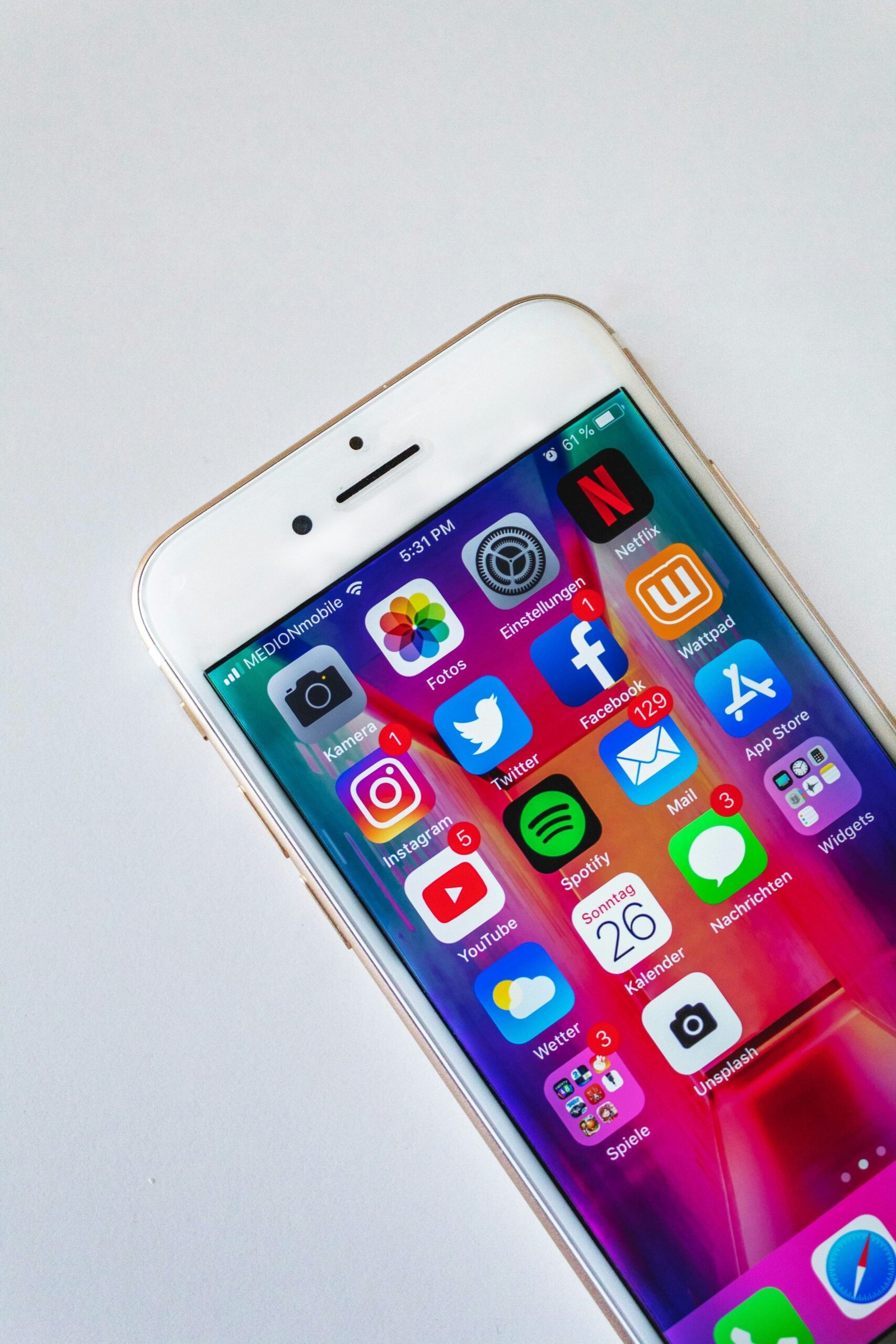In recent years, the rise of social media has fundamentally altered the landscape of human interaction. Platforms like Facebook, Instagram, Twitter, and TikTok have not only reshaped the way we communicate but also how we form and maintain relationships. With over 4.2 billion social media users worldwide, the influence of these platforms on our personal lives is both profound and pervasive.
Social media has the power to bring people closer together, bridging geographical distances and enabling real-time communication. It allows us to reconnect with old friends, keep in touch with family members, and even forge new relationships with people across the globe. However, this digital connectivity comes with its own set of challenges. The constant exposure to curated content, the pressure to present a perfect life, and the ease of miscommunication can strain even the strongest of relationships.
The aim of this blog post is to delve into 10 surprising ways social media impacts relationships, shedding light on both the positive and negative aspects of this phenomenon. By understanding these dynamics, we can better navigate the complexities of modern relationships in the digital age. Whether you’re a seasoned social media user or someone who has just dipped their toes into the online world, this exploration offers valuable insights into the intricate interplay between social media and our personal connections.
1. Enhanced Communication
Social media platforms such as Facebook, Instagram, and WhatsApp have revolutionized the way we communicate, making it significantly easier for individuals to stay in touch. These platforms offer a variety of tools that facilitate instant messaging, video calls, and the sharing of life updates, which are invaluable in maintaining and strengthening relationships.
Instant messaging on these platforms allows for real-time conversations, enabling people to communicate quickly and effortlessly. This immediacy helps to keep relationships dynamic and engaging, as friends and family can share their thoughts and experiences as they happen. Moreover, the ability to send photos, videos, and voice messages enhances the richness of these interactions, providing a more comprehensive way to express oneself.
Video calls are another critical feature of social media that has a profound impact on relationships. Platforms like WhatsApp and Facebook Messenger offer high-quality video calling services, allowing people to see and hear each other regardless of geographical barriers. This visual and auditory connection can be particularly beneficial for long-distance relationships, as it helps to bridge the gap and create a sense of closeness that text-based communication alone cannot achieve.
Sharing life updates on social media also plays a significant role in maintaining relationships. Platforms like Instagram and Facebook allow users to post photos, videos, and status updates about their daily lives, milestones, and achievements. This sharing fosters a sense of connection and involvement, as friends and family can stay informed and engaged with each other’s lives even if they are miles apart. By regularly sharing and interacting with content, individuals can nurture their relationships and remain an integral part of each other’s lives.
Overall, social media has provided us with powerful tools to enhance communication, making it easier to stay connected and strengthen bonds, especially in situations where physical proximity is not possible. These platforms have transformed the way we interact, offering numerous benefits that contribute to the health and longevity of our relationships.
Increased Jealousy and Insecurity
The advent of social media has significantly altered the dynamics of modern relationships, often amplifying emotions such as jealousy and insecurity. One of the most prominent factors contributing to this phenomenon is the constant visibility of partners’ interactions with others. When individuals see their significant others liking, commenting, or engaging with other people’s posts, it can invoke feelings of jealousy. This reaction is not only rooted in the immediate act of engagement but also in the broader context of how social media portrays idealized versions of life.
The portrayal of ‘perfect’ lives on platforms like Instagram and Facebook sets unrealistic standards for relationships. Users often curate their online presence to highlight the most positive and desirable aspects of their lives. This selective portrayal can lead individuals to compare their own lives unfavorably, fostering a sense of inadequacy and insecurity. When a partner appears to be engaging more actively with these idealized versions of other people’s lives, it can further erode self-esteem and trust within the relationship.
Psychologically, these reactions can be explained through the lens of social comparison theory, which posits that individuals determine their own social and personal worth based on how they stack up against others. The omnipresent nature of social media exacerbates this comparison, often resulting in feelings of jealousy and insecurity. Moreover, the immediate and often ambiguous nature of social media interactions can leave much to interpretation, fueling misunderstandings and mistrust.
For instance, a simple ‘like’ on an ex-partner’s photo can be perceived as a significant threat, even if it was a benign gesture. Similarly, seeing a partner frequently commenting on another person’s posts can be misconstrued as a sign of deeper emotional involvement. These interpretations can lead to conflicts and emotional distress, weakening the foundation of trust that is essential for any healthy relationship.
3. Public Displays of Affection (PDA)
In the age of social media, Public Displays of Affection (PDA) have transcended physical interactions and have found a significant presence online. Couples frequently share their relationship milestones, from anniversaries to daily interactions, on platforms such as Instagram, Facebook, and Twitter. This phenomenon allows individuals to celebrate their love publicly, showcasing their affection for one another in a manner that can foster a sense of community and support among followers.
One notable benefit of sharing these moments online is the positive reinforcement it can generate. Publicly posting about a partner can strengthen the bond between couples by reaffirming their commitment to each other. It also provides an opportunity for friends and family to engage, offer congratulations, and share in the joy of the couple’s achievements. Furthermore, these posts can serve as digital memories, preserving moments that can be revisited and cherished in the future.
However, the digital display of affection is not without its challenges. The concept of ‘relationship goals’—idealized portrayals of perfect relationships shared on social media—can create unrealistic expectations and pressures. Couples may feel compelled to present a flawless image of their relationship, which can lead to stress and dissatisfaction when real-life interactions do not measure up to the curated online persona. This pursuit of perfection can sometimes mask underlying issues, as partners may be more focused on maintaining appearances than addressing genuine concerns within the relationship.
Moreover, the constant sharing of personal moments can invite scrutiny and unwanted opinions from the public. The pressure to live up to the ‘relationship goals’ set by influencers and celebrities can lead to comparisons and feelings of inadequacy. It is essential for couples to navigate the fine line between celebrating their relationship and maintaining a healthy private life, ensuring that the focus remains on genuine connection rather than external validation.
Digital Infidelity
Digital infidelity, often referred to as cyber cheating, encompasses various forms of unfaithfulness that occur through digital means. This includes emotional cheating, flirtatious messaging, and engaging in online dating while in a committed relationship. Emotional cheating can involve developing a deep, emotional connection with someone other than one’s partner through social media platforms. This type of infidelity can be particularly damaging as it often signifies a shift of emotional energy and attention away from the primary relationship.
Flirtatious messaging, another common form of digital infidelity, involves sending suggestive or intimate messages to someone outside the relationship. This behavior, facilitated by the convenience and anonymity of social media, can erode trust and create feelings of betrayal. Online dating, while traditionally associated with single individuals seeking relationships, is increasingly being used by those already in committed partnerships. This not only breaches the exclusivity of the relationship but also exposes the involved parties to potential emotional and physical risks.
The accessibility of social media plays a significant role in facilitating digital infidelity. Platforms like Facebook, Instagram, and Snapchat make it easy to establish and maintain connections outside of one’s primary relationship. The constant availability of virtual interactions can lead individuals to seek validation and excitement from sources other than their partners, thereby undermining the relationship’s stability.
Research underscores the prevalence and impact of digital infidelity. A study conducted by the American Psychological Association found that 45% of individuals who experienced infidelity within their relationships cited online interactions as a contributing factor. Furthermore, a report from the Pew Research Center indicated that 27% of adults have encountered online flirting or romantic advances while in a relationship, highlighting the pervasive nature of this issue.
The implications of digital infidelity are profound, often leading to a breakdown of trust and intimacy. Relationships affected by cyber cheating may struggle to recover, with partners feeling a deep sense of betrayal and insecurity. Therefore, addressing digital boundaries and fostering open communication about social media use are essential steps in maintaining relationship integrity in the digital age.
Miscommunication and Misunderstandings
In the realm of social media, communication between individuals often occurs through text-based messages. While this form of communication is convenient, it lacks the non-verbal cues that are essential for conveying emotions and intentions accurately. The absence of facial expressions, tone of voice, and body language can lead to significant miscommunication and misunderstandings between partners.
Text-based communication is inherently limited. For example, a simple message like “I’m fine” can be interpreted in myriad ways depending on the context and the reader’s emotional state. Without the aid of non-verbal cues, partners may misinterpret each other’s messages, leading to unnecessary conflicts and emotional distress. These misunderstandings can erode trust and create a sense of emotional distance in the relationship.
Moreover, the asynchronous nature of text communication can exacerbate these issues. When partners are not responding in real-time, it leaves room for doubt and anxiety to fester. A delayed response can be misconstrued as disinterest or avoidance, further complicating the relationship dynamics. The lack of immediate feedback makes it challenging to resolve misunderstandings promptly, often resulting in prolonged periods of tension.
To mitigate these issues, couples should prioritize clear and open communication. One effective strategy is to use video calls or voice messages for more nuanced conversations, as these platforms provide the necessary non-verbal cues. Additionally, setting aside dedicated time for face-to-face interactions, whether in person or virtually, can help maintain a stronger emotional connection.
It’s also beneficial to clarify intentions and emotions explicitly in text messages. Using emojis or specifying feelings can provide additional context that words alone might fail to convey. Finally, practicing patience and giving each other the benefit of the doubt can go a long way in preventing minor misunderstandings from escalating into significant conflicts.
The Pressure of Social Comparison
Social media has become a ubiquitous part of modern life, providing a platform for individuals to share moments and milestones with a wide audience. However, this constant connectivity has introduced a new dynamic into relationships: the pressure of social comparison. This phenomenon is particularly pronounced in the context of romantic relationships, where couples often find themselves measuring their own experiences against the ‘highlight reels’ of others.
Highlight reels refer to the curated and often idealized versions of life events that people share on social media. These posts typically showcase the best, most picturesque moments, creating a polished and sometimes unrealistic portrayal of one’s life. When couples see these highlight reels, they may begin to feel that their own relationship is lacking in comparison. This can lead to unrealistic expectations, as individuals may believe that other couples are constantly experiencing joy and harmony, without the everyday challenges that are a natural part of any relationship.
The psychological effects of this constant comparison can be significant. Research has shown that social comparison can lead to feelings of inadequacy, jealousy, and dissatisfaction within one’s own relationship. This is exacerbated by the fact that social media often lacks context; a single photo or status update does not convey the full picture of any relationship. As a result, individuals may overlook the complexities and nuances of their own relationship, focusing instead on an idealized version that may not reflect reality.
To mitigate the negative impact of social comparison, it is important for individuals to focus on their own relationships. This can be achieved by setting boundaries around social media use, such as limiting time spent on platforms or being mindful of the content consumed. Additionally, open communication with one’s partner about the effects of social media can help to foster a more realistic and supportive environment. By acknowledging the curated nature of social media and prioritizing genuine connection over comparison, couples can strengthen their relationships and reduce the pressure of social comparison.
The Role of Social Media in Conflict
Social media has a profound impact on how conflicts unfold and are managed within relationships. On one hand, platforms like Facebook, Twitter, and Instagram can escalate disputes. Public arguments or passive-aggressive posts often amplify issues, drawing in external opinions that can complicate the situation. These public displays of dissatisfaction can lead to a sense of embarrassment or defensiveness, making it harder for couples to address the root cause of their conflict privately.
For example, a couple might start by exchanging barbed comments on a social media post, which then attracts comments from friends and family. This intrusion can shift the focus from the original issue to managing the perceptions of others, further straining the relationship. Additionally, the permanence of social media posts means that these arguments can be revisited repeatedly, preventing the couple from moving past the conflict.
Conversely, social media can also play a constructive role in resolving disputes. Some couples find that digital communication offers a less confrontational way to discuss sensitive issues. Platforms such as private messaging apps provide a space where individuals can articulate their feelings more clearly and thoughtfully, without the heat of face-to-face interactions. This can lead to more productive conversations, as each person has the time to consider their words and responses carefully.
Moreover, social media can serve as a repository for positive memories, which can help couples reconnect during times of conflict. Re-visiting shared posts, photos, and experiences can remind partners of their commonalities and the positive aspects of their relationship, fostering a sense of unity and understanding.
In sum, while social media has the potential to exacerbate conflicts by making them public and drawing in external voices, it also offers tools for private, thoughtful communication. The key lies in how couples choose to leverage these platforms, either as arenas for public dispute or as channels for effective, meaningful dialogue.
Conclusion
Throughout our exploration of social media’s impact on relationships, it is clear that digital platforms wield significant influence. The positive aspects include the ability to stay connected with loved ones, share life moments, and find support communities. Conversely, the negative effects can manifest as decreased face-to-face interactions, misunderstandings due to lack of non-verbal cues, and the potential for fostering jealousy or insecurity.
Social media serves as a double-edged sword in maintaining interpersonal relationships. On one hand, it can bridge geographical gaps and provide a sense of belonging. On the other hand, it can lead to superficial connections and emotional detachment. The key takeaway is the importance of balance and mindful usage. Being aware of how much time is spent online and ensuring that it does not replace real-world interactions is crucial.
As we navigate this digital age, it is essential to cultivate healthy habits. Communicate openly with your partners and friends about your social media boundaries and be intentional about spending quality time together offline. Regularly evaluate how social media use affects your emotions and relationships, and make adjustments as needed.
Ultimately, social media is here to stay, and its role in our lives will continue to evolve. By being conscious of its dual nature and taking proactive steps to mitigate its negative effects, we can foster stronger, more meaningful relationships. Embrace the opportunities it offers, but do not let it overshadow the value of personal, face-to-face connections.














